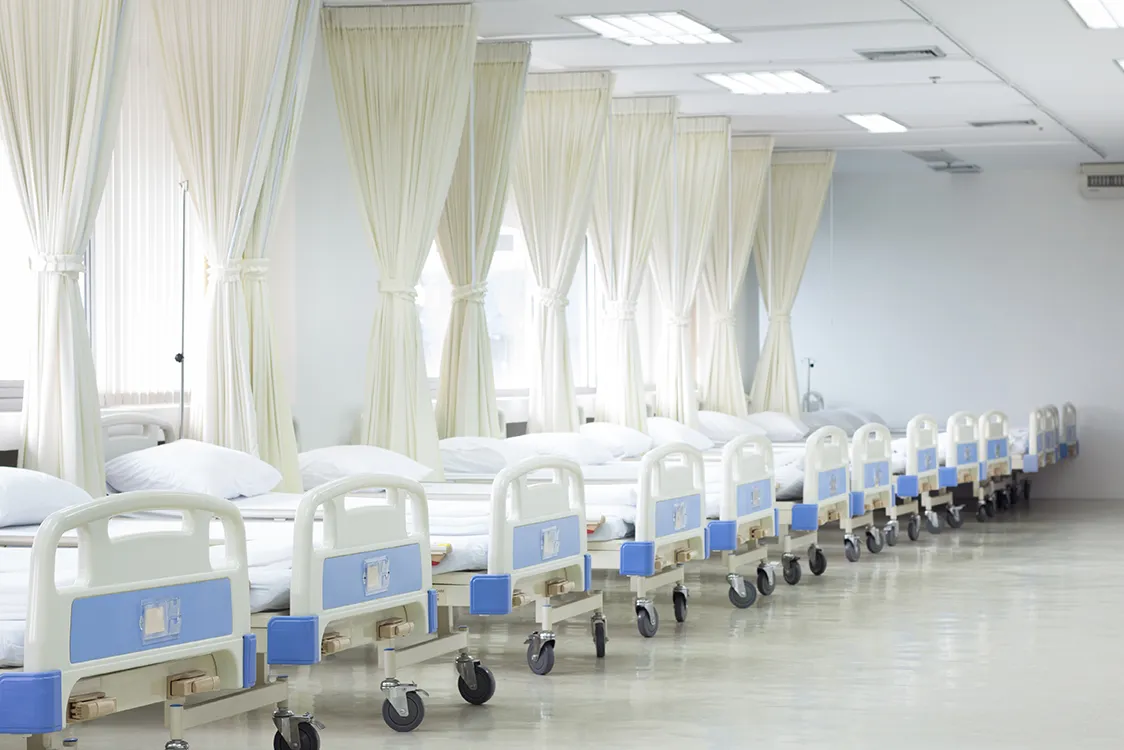Faridabad: Prime Minister Narendra Modi is set to inaugurate a 2,600-bed new private hospital next week, complete with cutting-edge technology such as a centralised fully automated laboratory, patient-centric wards and OPDs, and built on a sprawling 130-acre campus with sustainability in mind. The modern Amrita Hospital has a dedicated seven-story research block and was built over six years under the auspices of the Mata Amritanandmayi Math. The prime minister is scheduled to open the hospital on August 24.
The new super speciality hospital will begin operations with 500 beds and fully operational in phases over the next five years. According to hospital officials, once fully operational, the hospital with 81 specialities will be the largest private hospital in Delhi-NCR and the country.
The project was first envisioned in 2012, according to Dr Sanjeev K Singh, Resident Medical Director of the hospital, and the initial plan was to build it in Delhi. The project’s groundwork, which began in mid-2016, was delayed due to various factors, including the acquisition of lands, and was severely stalled during the COVID-19 pandemic lockdowns.
“As the Covid infection primarily spreads through air droplets, some designs were redone, and other elements were added to make the hospital environment safer for patients. Covid also taught us a few important lessons. We have therefore constructed what is known as a negative pressure room, which is a form of isolation room where suspected cases can be kept separated from other patients, in contrast to a typical isolation room, “In an interview, he told PTI.
According to the doctor, these rooms have negative pressure, which allows only non-contaminated filtered air to enter. And the contaminated air is drawn out of the room by exhaust systems equipped with filters that clean the air before it is pumped out and away from a medical facility.
“Additionally, our system makes an effort to keep the procedure as contactless as possible. Doctors will also be given private tablets to work on, which will be non-exchangeable and will contain all the information and medical history.
Amrita Hospital is the country’s second hospital to be constructed under the auspices of the Mata Amritanandmayi Math; the first was established in Kochi in 1998.
The new mega-hospital in Sector 88 of Faridabad, close to the Delhi-Mathura Road. The campus will also include a medical college, a dedicated research building, and eight centres of excellence including mother and child care, renal sciences, bone diseases, and trauma.
The hospital complex will have a built-up area of 36 lakh square feet, with a 14-floor tower housing the leading medical facilities. According to officials, there is also a helipad facility on the rooftop.
According to a hospital spokesperson, the facility will be “India’s largest facility” to combat infectious diseases and will include:
• 54 critical care units.
• Smart ICUs with 534 critical care beds that are continuously monitored by computers.
• Sixty-four fully networked modular operating rooms.
Around 10,000 employees and more than 800 doctors will work at the hospital once it is fully operational.
In a modular ICU ward, two patients kept in adjoining rooms with sliding glass doors can be monitored at once with a small standard nursing station operated by one nurse, who can call nursing assistance or doctors simply by pressing buttons with colour-coded buttons placed next to the patient’s bed.
“To introduce cutting-edge technology and make the system more patient-centric, blood or other samples can be taken solely inside the room in critical care or other wards. Then, the vial can be sent to the centralised lab using pneumatic tubes with no human intervention. The range of contact is also narrowed in this manner, “Added Singh.
Each vial has a bar code. After the vial is manually moved to the lab system in the collection room and sent to the appropriate machine for serum or plasma extraction or a blood test, for example, it is automatically directed to the machine by the bar code. According to him, it is a sizable automated system.
“Our PM talks of ‘Jai Anusandhan’, so it is in line with that vision too,” Singh said.





